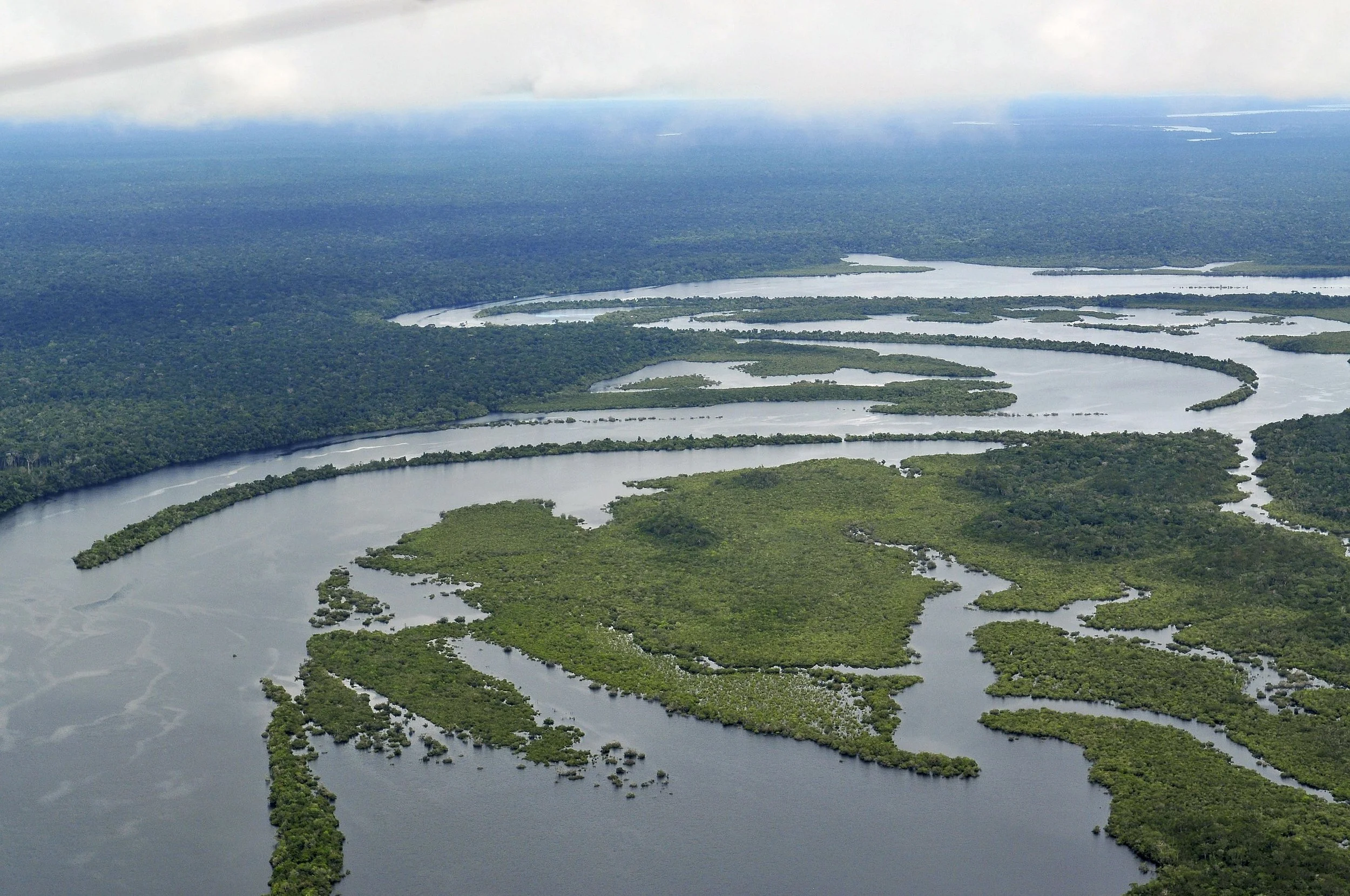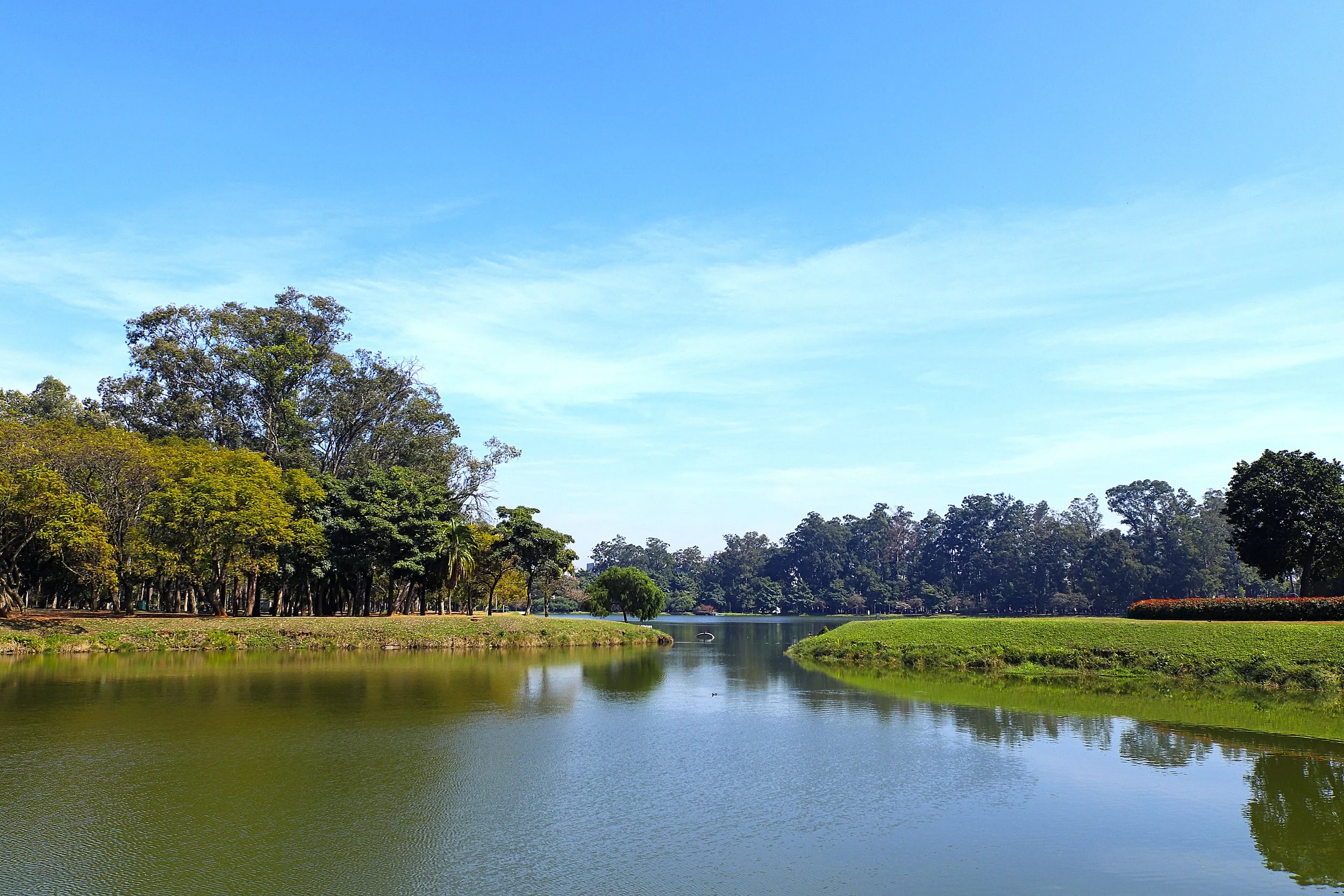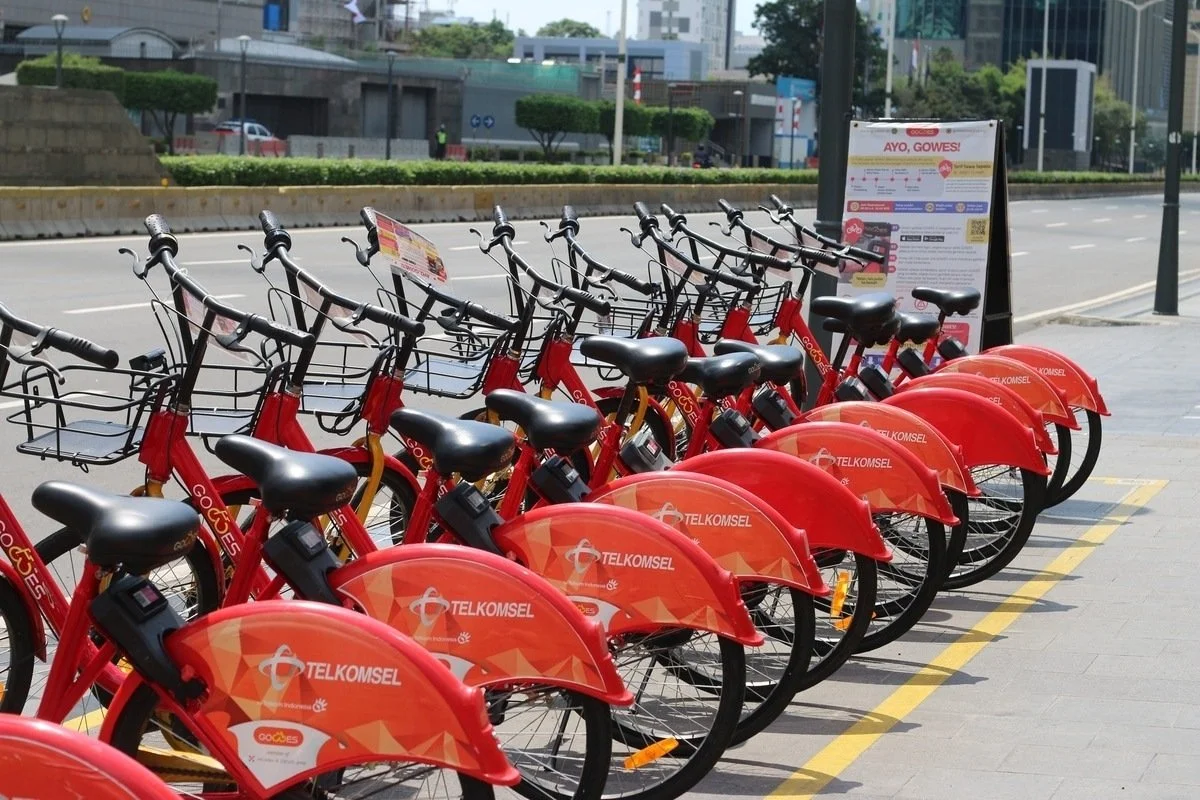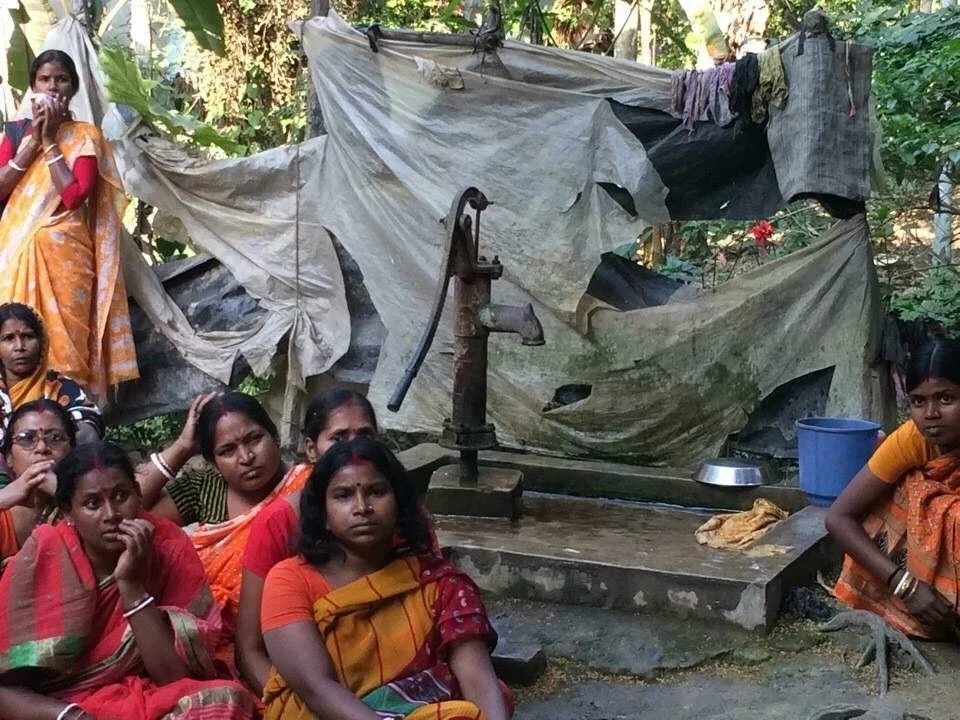I S S P B l o g
Bringing you the resources, the inspiration, and the insights to ensure that your work advances sustainability and your career at speed and scale.
Contributing Editor: Trisha Bauman, CEO & Founder of TJBauman and ISSP Governing Board Member
SSP Co-founder and Presidio Graduate School Faculty Chair Marsha Willard, PhD, SEP, shares insights into the emerging trends shaping our sustainability profession and how ISSP is enabling us to meet those challenges.
Gwen Migita, MBA, Global Head of Environmental, Social, and Governance (ESG) & Social Impact Practice at Point B, offers a pro-business and capital markets perspective on integrating fully inclusive equity and justice — as a necessity for planetary and societal survival for all.
At our present GHG emissions level, it is clear that emission reductions alone will not limit global surface temperature increase to the Paris Agreement's 1.5°C by end of century. Justin Macinante, PhD, MEL, LLB, a Climate Change Research Fellow at the University of Edinburgh Law School, presents a proposed mechanism that could drive the necessary CO2 removals — and meet the Paris target.
Throughout Syria’s war, committed changemakers have worked to expand the narrative and to cultivate empathy for those affected. Lena Arkawi, MIA, founded Sourceable, Inc with a group of Columbia graduate students to enable citizen journalists to share their stories in real-time with media and NGOs. In this blog, she shares how their work is guided by the principles of the U.N. Sustainable Development Goals (SDGs).
The International Olympic Committee, The French National Olympic Committee, and the French government commit to sustainability practices for the Paris 2024 Olympic Games. ISSP Board Member Gary Tong, Senior VP at Alix Partners, analyzes what that might look like and why it matters.
Referencing the Hero’s Journey of Joseph Campbell and the Japanese concept of Ikigai, Nitesh Dullabh, CEO of 2POD Ventures and ISSP Governing Board Vice President, explores the key ingredients to building a sustainability culture in an organization.
Trisha Bauman, M.Sc., Principal at TJBauman, LLC and ISSP Governing Board President, offers how climate art allows our capacity to re-vision as a community. It enables diverse identities to come together to investigate ideas, share reflections, express feelings, and invoke imaginations: human experiences that are essential to transforming the very systems driving our polycrisis threats.
Marco Tedesco, PhD, Lamont Research Professor at Columbia University's Lamont-Doherty Earth Observatory and Climate School, reflects on the importance of emotional intelligence in sustainability. He advises a balance of emotional, rational, and artificial intelligence for a sustainable world.
Bobuchi Ken-Opurum, PhD, Founder of Re-HOUSED Decision Support Toolkit and Director of Research at Texas Energy Poverty Research Institute, shares a people-centered approach to successfully meeting the challenges of flooding and heat stress in the tropical Global South. Recognized by the 2023 Forbes 30 Under 30 list, Ken-Opurum's Re-HOUSED engages with frontline communities to create scalable, bottom-up resilience and adaptive capacity.
The path toward meeting the UN Sustainable Development Goals is accelerated through increased collaboration on interconnected, multifaceted solutions. Michelle Benavides, ISSP Executive Director, highlights the power of a network of individuals, organizations, and partners to create the sustainable future we each need and deserve.
How might the sustainability profession bend the alarming curves across all sustainability metrics—from emissions to wage inequality and to species collapse? Fabian Sack, PhD, Director at Sustainably Pty Ltd and ISSP Governing Board Member, shares insights from a three-decade career in sustainability practice.
A global context of heightening political turmoil has surrounded COP27. In view of the current stakes, John Elkington, Chairman & Chief Pollinator at Volans Ventures and ISSP Sustainability Hall of Fame Honoree, urges all of us in sustainability to learn to do politics. And to shift our lens to COP28.
Marta Suplicy, Municipal Commissioner of International Affairs for the City of São Paulo, asserts that cities—even megacities such as São Paulo—can lead the transition to a circular economy. Drawing from Sao Paulo's impressive initiatives, Suplicy shares the inspiration and the road map for regenerative urban policy, with no one left behind.
If global food waste were a country, it would be the third largest GHG emitter in the world. Yet more than the food industry needs to be involved if we are to make a dent in reducing this problem—and reap the environmental, economic, and social benefits that will yield. Dana Gunders, Executive Director of ReFED, shares easy actions any sustainability leader can take at their own company.
UN leaders from around the world are gathering in New York City this month at the High-Level Political Forum (HLPF) on Sustainable Development to discuss progress on the UN Sustainable Development Goals (SDGs). Chhavi Maggu, MEng, SEP, Sustainability Strategy Manager at Accenture and ISSP Governing Board Treasurer, looks at the issue of urban mobility and its tangible impact on our capacity to continue to advance toward the goals.
Although vast and diverse, the ocean is “out of sight and out of mind” for many. Yet, it drives global systems that make the Earth habitable for humankind and is economically critical to the whole of humanity, from 90% of international trade to offshore energy resources increasingly supplying low-carbon wind energy, the promise of major wave, current and tidal energy, and up to 30% of hydrocarbons. Paul Holthus, Founding President and CEO of the World Ocean Council, offers a valuable look into our blue planet—much of our oceans beyond national jurisdiction and thus constituting our global commons—and its dire need of revitalization. Only through coordinated, international business action can we hope to meet SDG #14: to conserve and sustainably use the oceans, seas, and marine resources for sustainable development.
It has taken the world almost 40 years to (largely) accept that climate change is happening, but the world doesn’t have another 40 years to accept that biological diversity faces accelerating diminution from anthropogenic behaviors. Biodiversity—its successes and its failures—is a critical sounding board for the long-term sustainability of all life, including human life, on our planet. Vicki Brady, MSc, FEIANZ, CEnvP, President of the Environment Institute of Australia and New Zealand (EIANZ) and Environment Business Partner at AGL Energy, shares a call-to-action for environmental and sustainability practitioners everywhere: unite as we have never done before in a global, coordinated, and sustained effort to use the best science we have to advance positive ecological projects.
Without the balanced socio-economic empowerment of women and girls, building a healthier, more sustainable, and more equitable future is an impossibility. On the occasion of Earth Day 2022, Shannon P Marquez, PhD, MEng, Dean of Global Engagement at Columbia University; Faculty, Columbia Climate School and Mailman School of Public Health, encourages us all to choose a regenerative future through empowering women and girls and addressing one of the most pressing global challenges in our lifetime—universal access to water and sanitation.
Water is essential for healthy ecosystems, socio-economic development, social well-being, and for human survival itself. In recognition of World Water Day on 22 March, Will Sarni, Founder & CEO at Water Foundry and Founder & General Partner at the Colorado River Basin Fund, looks at the ways in which water management and regulatory compliance alone are no longer a viable corporate water strategy. There is now a pressing need to address “outside the fence line” water issues such as scarcity, poor quality, inequity in access to safe drinking water, and the impacts of climate change. While regulatory compliance for water and associated management practices are the cornerstone of a corporate water strategy, they do not deliver the full value to corporations, communities, and other stakeholders. There is an opportunity to do more. And we must capitalize on it now.
With the launch of the International Sustainability Standards Board (ISSB), sustainability reporting will move from NGOs and done on a voluntary basis to securities regulators and done on a mandated basis. What will this mean for a Chief Sustainability Officer (CSO)? Robert G. Eccles, PhD, Visiting Professor of Management Practice at the Said Business School, University of Oxford, forewarns that CSOs could become more marginalized, less relevant to the strategic and capital allocation decisions of the company where they work. Or it could make them more central to their company's strategic decision-making. It all depends on how the CSO handles the situation and their relationship with the CFO.
The wake of COP26 left bitter disappointment. As we enter the third year of this decisive decade, what will get us to the Net-Zero Standard of cutting GHG emissions 50% by 2030 and 100% by 2050? For Bob Willard, PhD, SEP, Chief Sustainability Champion & Founder at Sustainability Advantage and ISSP Sustainability Hall of Fame Honoree, Glasgow made clear: it's up to us. We can't rely on national governments to fix climate change. We need to unleash market forces and make fossil fuel energy unnecessary, unwanted. How do we do that? He advises following the money and influencing the influencers.
Human rights are rights we all have because we exist, we live, we breathe. Liz Stern, Board Member at Refugees International and Advisory Board Member at the Auschwitz Institute for the Prevention of Genocide and Mass Atrocities, shares a personal call-to-action as the world acknowledges Human Rights Day this month. In a time of challenge and discord, it can be all too easy to blame or focus on “otherness” as the root of our difficulties. Stern encourages us to tell our stories, find places of connection and shared interest, taking away the fear of the unknown and allowing reflection on the path ahead. By staying people-focused, we can create the change we seek, inclusive of all the rights of humans while re-imagining our work in sustainability.
John Elkington, Founder & Chief Pollinator, Volans Ventures and ISSP Sustainability Hall of Fame Honoree, shares his on-the-ground experiences, conversations, and insights from COP26 in Glasgow. To meet the intergenerational challenges confronting our global community, Elkington signals intergenerational solutions, including radically different politics and economics. The battle now is to create a world that is fit for the young of all people—and all species.
As we observe the breadth of UN observances this October, from World Habitat Day to World Migratory Bird Day to United Nations Day, Denise DeLuca, Director, MA in Sustainable Design, MCAD and President of the ISSP Governing Board, describes how biomimicry inspires functional strategies, processes, and systems to create sustainable design solutions to meet the Sustainable Development Goals.
In the context of the International Day of Peace on 21 September, Allen Hershkowitz, PhD, Founding Director & Chairman at Sport and Sustainability International and Environmental Science Advisor for the New York Yankees, takes a look at SDG16: Peace, Justice, and Strong Institutions. Dr. Hershkowitz brings insight to the critical role of leadership in shaping organizational culture and operations to advance the sustainability imperative and the SDGs' aspiration for peace, justice, and equity.
There is no other possible future than a regenerative one. Mathis Wackernagel, Ph.D., Founder & President, Global Footprint Network and ISSP Sustainability Hall of Fame Honoree, explains how the risks of global ecological overshoot — human demand exceeding the regenerative capacity of our natural ecosystem — may well be the second most severe challenge facing humanity in the 21st century. The biggest risk of all: that of not responding.
The Covid-19 crisis has illustrated the insufficient resilience of our societies. Reflecting upon the UN's High Level Political Forum on Sustainable Development (HLPF), which took place 6-15 July 2021, Ambassador Nicolas de Rivière, Permanent Representative of France to the United Nations, calls on governments and civil society to work in a multilateral spirit towards the realization of the 2030 Agenda.
As the United Nations launches the Decade of Ecosystem Restoration, Fabian Sack, Director of Sustainably Pty Ltd and ISSP Governing Board Member, reflects on why this super year for nature gives some hope that coordinated national and international policy leadership may be possible.
We are facing a gap between intention and action in sustainability. Reflecting on a recent TEDxISSP event, Trisha Bauman, CEO & Founder of TJBauman LLC and ISSP Governing Board Vice President, discusses ways to accelerate the decrease in the sustainability intention-action gap.
A systemic challenge like the climate crisis requires systemic solutions. Erin Billman, Executive Director of Science Based Targets Network, discusses how science-based targets for nature can help companies address their impacts to and interdependencies with the nonhuman world.































